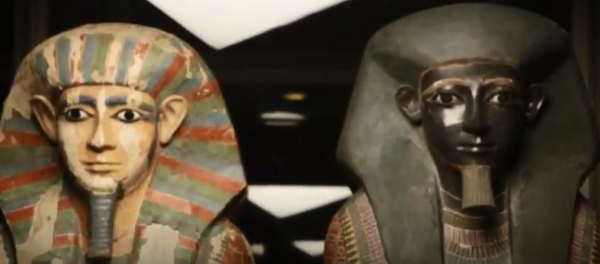Whether you're in a library or a coffee shop and you need to step out for a moment, the study, conducted by researchers from New York University, says that you're more likely to entrust a stranger to watch your stuff if they resemble an old friend you found trustworthy.
On the other hand, if your only option is to leave that laptop in the care of someone resembling a cheating ex-lover, the chance of you stepping away is unlikely.
"We make decisions about a stranger's reputation without any direct or explicit information about them based on their similarity to others we've encountered, even when we're unaware of this resemblance," Elizabeth Phelps, one of the researchers in the study, said in a statement. "This shows [how] our brains deploy a learning mechanism in which moral information encoded from past experiences guides future choices."
Though researchers indicated that their work had given them a better understanding of how social decision-making unfolds, they also indicated that it's somewhat less clear how exactly the brain functions when making decisions involving strangers.
For the study, officials recruited a total of 29 participants and conducted a series of experiments that centered on trust games. In these games, the subjects were given $10 and asked to decide which of three different players, who were represented by facial images on a computer, could be entrusted with the Hamilton.
Participants were further informed that after making the selection that any money invested was automatically quadrupled and that the computerized partner could either share the funds back with the subject or keep it for themselves.
At the end of the game, each study participant realized that there was always one computerized partner that was highly trustworthy, one somewhat trustworthy and another that was untrustworthy as they shared the profits 93, 60 and 7 percent of the time, respectively.
After being conditioned to recognize the faces of those who could be trusted, a new game was then launched with a supposed new group of potential investment partners. What study subjects were not aware of was that the new computerized faces that were being introduced were just morphed versions of the faces from the first game.
Rather than picking which of three figures to invest the money with, the second experiment had participants either pick a partner whose face they couldn't see or a player whose face was shown. It was here that researchers discovered that study participants were more inclined to choose partners that looked like the trustworthy figure they'd encountered previously and opted to choose the faceless figure than the person who resembled the untrustworthy character from the previous game.
This, says lead author Oriel Feldmanhall, shows "that strangers are distrusted even when they only minimally resemble someone previously associated with immoral behavior."
Feldmanhall says the study supports the findings of Russian scientist Ivan Petrovich Pavlov, who studied classical conditioning.
"Like Pavlov's dog, who, despite being conditioned on a single bell, continues to salivate to bells that have similar tones, we use information about a person's moral character, in this case whether they can be trusted, as a basic Pavlovian learning mechanism in order to make judgments about strangers," the researcher added.
Later, using 28 new participants, researchers repeated their experiment, this time also conducting neural scans. Here they found that when subjects were deciding whether or not a partner could be trusted, activity in the amygdala, an area of the brain that is linked to processing threats, increased.
According to researchers, the finding outlines the brain's ability to adapt to previous learning experiences.
The study was funded by the National Institutes of Health.





